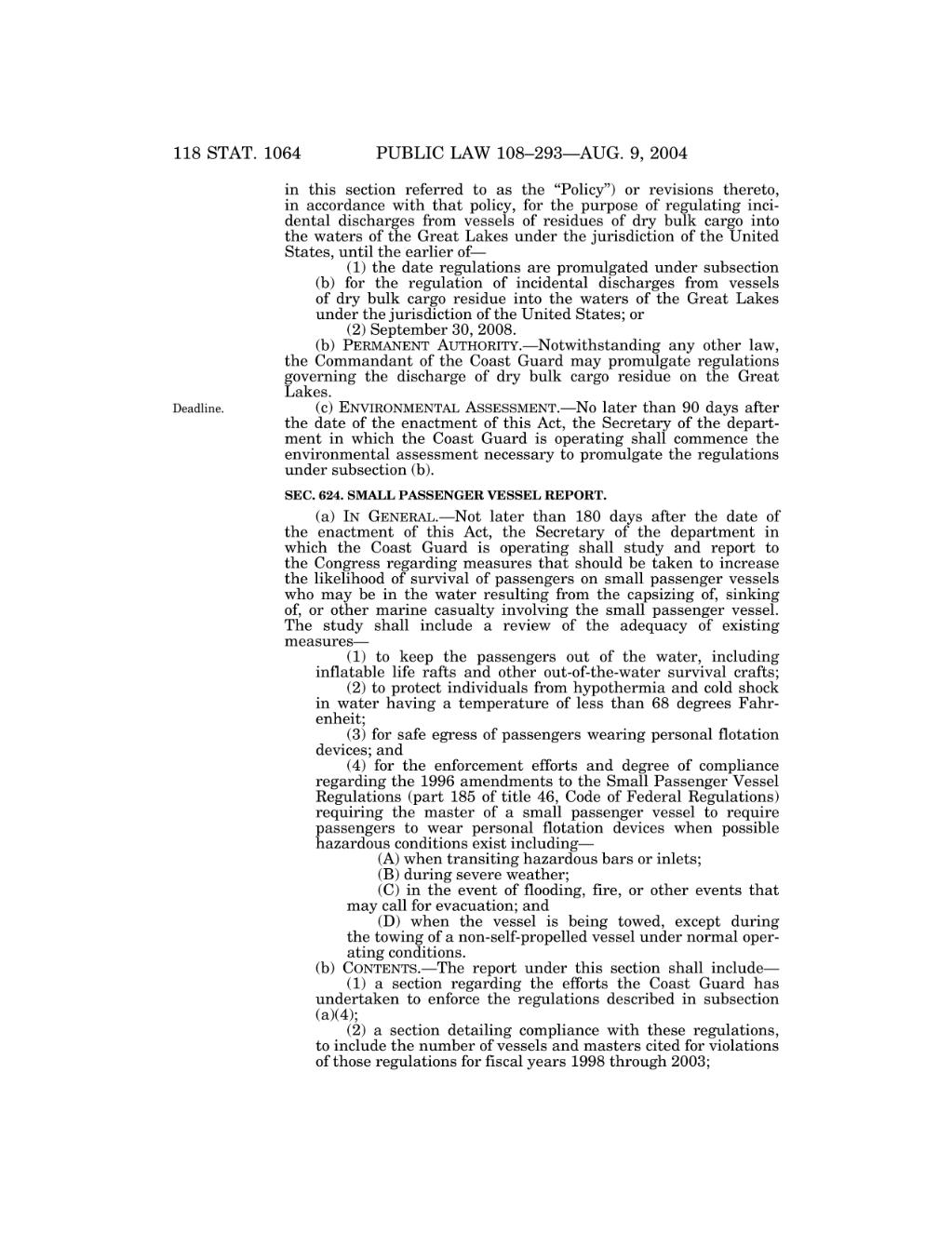in this section referred to as the “Policy”) or revisions thereto, in accordance with that policy, for the purpose of regulating incidental discharges from vessels of residues of dry bulk cargo into the waters of the Great Lakes under the jurisdiction of the United States, until the earlier of—
- (1) the date regulations are promulgated under subsection (b) for the regulation of incidental discharges from vessels of dry bulk cargo residue into the waters of the Great Lakes under the jurisdiction of the United States; or
- (2) September 30, 2008.
(b) Permanent Authority.—Notwithstanding any other law, the Commandant of the Coast Guard may promulgate regulations governing the discharge of dry bulk cargo residue on the Great Lakes.
(c)Deadline. Environmental Assessment.—No later than 90 days after the date of the enactment of this Act, the Secretary of the department in which the Coast Guard is operating shall commence the environmental assessment necessary to promulgate the regulations under subsection (b).
SEC. 624. SMALL PASSENGER VESSEL REPORT.
(a) In General.—Not later than 180 days after the date of the enactment of this Act, the Secretary of the department in which the Coast Guard is operating shall study and report to the Congress regarding measures that should be taken to increase the likelihood of survival of passengers on small passenger vessels who may be in the water resulting from the capsizing of, sinking of, or other marine casualty involving the small passenger vessel. The study shall include a review of the adequacy of existing measures—
- (1) to keep the passengers out of the water, including inflatable life rafts and other out-of-the-water survival crafts;
- (2) to protect individuals from hypothermia and cold shock in water having a temperature of less than 68 degrees Fahrenheit;
- (3) for safe egress of passengers wearing personal flotation devices; and
- (4) for the enforcement efforts and degree of compliance regarding the 1996 amendments to the Small Passenger Vessel Regulations (part 185 of title 46, Code of Federal Regulations) requiring the master of a small passenger vessel to require passengers to wear personal flotation devices when possible hazardous conditions exist including—
- (A) when transiting hazardous bars or inlets;
- (B) during severe weather;
- (C) in the event of flooding, fire, or other events that may call for evacuation; and
- (D) when the vessel is being towed, except during the towing of a non-self-propelled vessel under normal operating conditions.
(b) Contents.—The report under this section shall include—
- (1) a section regarding the efforts the Coast Guard has undertaken to enforce the regulations described in subsection (a)(4);
- (2) a section detailing compliance with these regulations, to include the number of vessels and masters cited for violations of those regulations for fiscal years 1998 through 2003;
